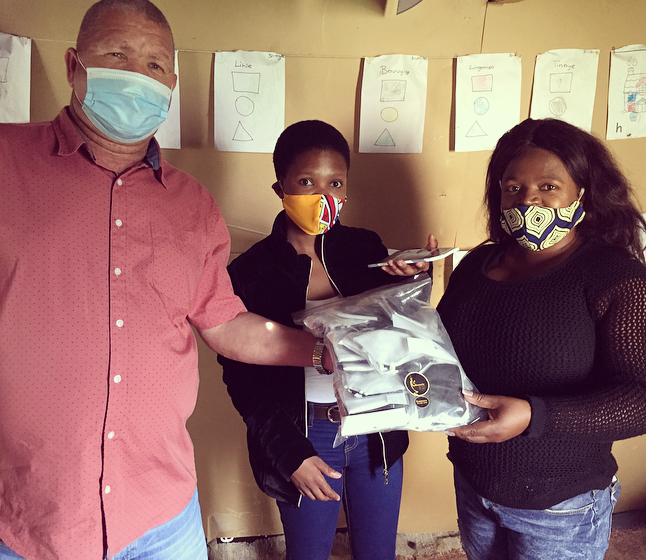Asakhe Daycare Centre was founded in 2014 by its principal Nomzikazi Mpambani, who had become disheartened by how many children in her local community were not attending school. Nomzikazi had a passion to see them learn and grow in their knowledge, especially from an early age, and so Asakhe was born. In isiXhosa, Asakhe means ‘let’s build’, and that is exactly what Nomzikazi did, as she saved up money until she was able to build an extra room onto her home, and then another, and another. Currently, the Centre comprises three rooms, with Nomzikazi hoping to build a fourth one to function as an office space.
Since then, Asakhe has served numerous children aged 0 – 5 years old in Walmer Location, Port Elizabeth. The Centre currently runs a nutrition programme which provides the children with porridge in the morning, snacks at 10am, and a cooked meal at 1pm. The centre also recently launched an initiative to acquire uniforms for all the children, in order to remove the pressure from parents who could not afford new clothes for them.

Due to COVID-19, many parents in the community had to continue working, while their children were unable to go to school due to lockdown regulations. This problem is just one example of the disconnect that exists between the regulations imposed on communities, and the community members’ actual lived experiences. The Centre’s temporary closure meant that most – if not all – of the children did not receive food during that time, as the Centre had previously provided them with two meals a day. After several parents requested that Nomzikazi reopen the Centre’s doors, and once lockdown levels eased, she and the other teachers immediately began the rigorous process of cleaning and sanitizing the space so that the children could safely return.
For the majority of the lockdown period, Asakhe, along with many other centres, did not receive subsidies from the government. According to Nomzikazi, the centre eventually received its subsidy in October 2020 – seven months after lockdown began.
The CCW’s coordinator, Nicole Collier-Naidoo, caught up with the four BSW students, Remember Shibambu, Khuselwa Makhokozi, Beverley Kubeka and Simphiwe Mokwena, who had initiated the partnership between Asakhe and the CCW to find out more about their experiences in working with the centre. All four students had moving stories to tell about what drew them to this course of study, in most cases thanks to the positive impact of a social worker within their communities growing up.
According to Remember Shibambu, the four of them had adopted a people-centred approach, and shared that he had grown up in a similar community with similar social issues. Rather than coming into the community to tell members what would work best, the students worked in collaboration with the community to determine their needs, and the necessary resources available. In other words, rather than trying to change the situation, the students served as facilitators for the change that needed to take place in the community, by the community.
As part of their second-year curriculum, BSW students learn about Asset Based Community Development (ABCD) – an approach to sustainable community-driven development, and one that both the students and the CCW adopted in their partnership with the centre.
When asked about what had stood out to them, the students shared that they’d been surprised by how involved the teachers at the Centre were in each of the programmes, and went on to express their shared interest in maintaining a long-term relationship with the Centre and the work they are doing.
One thing that each of the students repeatedly mentioned was their appreciation and admiration for the Centre’s principal. Despite the many curveballs that COVID-19 presented, the students praised Nomzikazi for her patience, positive attitude, and persistent commitment to making their collaboration with the Centre a success, and truly going the extra mile to meet her community’s needs.